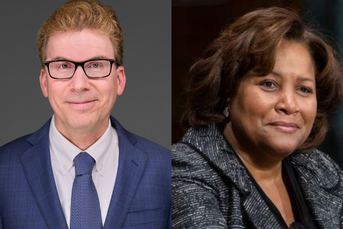Demographic time bomb set to hit financial advice industry

The country’s advisors are retiring, along with their baby boomer cohorts, exactly when those clients need advisors' services the most.
Nearly 40 percent of financial advisors are expected to retire in the next decade, and the replacement rate is not keeping up.
Based on those simple facts, it’s plain to see the wealth management industry is on the cusp of a demographic nightmare.
Compounding the problem, says Sandy Herzlich, vice president of retirement strategy at The American College of Financial Services, is the fact that the country’s advisors are retiring, along with their baby boomer cohorts, exactly when those clients need their services the most. According to Cerulli, nearly 60 percent of RIA assets are managed by advisors aged 55 and above.
“The baby boomers need more financial advisors and we’re providing less,” Herzlich said. “The American College of Financial Services is working hard to solve the problem by introducing more people into the industry, especially minorities.”
The high attrition rate among new financial advisors in their first two to three years is not helping the situation. Herzlich attributes that to the fact that the financial advisory business structure has traditionally been a matter of “eat what you kill,” making it an extremely tough business to get started in.
He does offer some solutions to address the problem, including having companies provide a better glide path for new employees to help them stick around through the tough times.
“As a college, we can help people gain the education they need to differentiate themselves and jump-start their careers,” said Herzlich. “We’re kicking around an idea right now of working with undergraduate colleges to put in an investment training program and a financial advice training program where kids can come out of college with a designation that doesn’t require the tenure that the CFP or the CHFC does.”
Herzlich acknowledges that a big part of the retention problem is the heavy focus on sales – and therefore rejection – instead of financial planning at the start of a career.
“I don’t think they leave after three years because they decide they don’t like the business. It’s that they get to three years and they decide they’re not making any money,” he said.
Matt Matrisian, senior vice president and head of client growth at AssetMark, says current advisors need to do more to attract younger advisors to the profession and set them up for success, and eventual succession.
To do this, he recommends that practices establish clearer communication about career paths so the next generation of advisors is aware of exactly what they need to do to reach the next level and is more incentivized to stick with the firm amid a rise in job-hopping across all industries.
“Practices can also bolster the recruitment pipeline by looking beyond new graduates and focusing on attracting individuals from nontraditional backgrounds,” Matrisian said. “For example, I recently spoke with a firm that had great success bringing on several new recruits who wanted to transition away from teaching.”
He adds that the next generation of advisors also needs to think about how they scale their client experience model to serve more clients than their predecessors, given that there are fewer advisors in the market.
“With more investors in the market expecting more services from their advisors, advisors may need to leverage other partners, like outsourcing and technology,” Matrisian said.
Here’s why financial advisors should hire military spouses for their practices
Learn more about reprints and licensing for this article.








